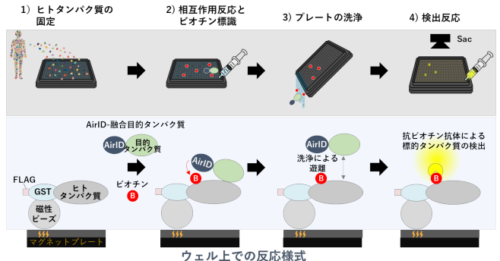2022-07-07 カリフォルニア大学サンタバーバラ校(UCSB)

<関連情報>
- https://www.news.ucsb.edu/2022/020677/importance-elders
- https://www.pnas.org/doi/abs/10.1073/pnas.2200073119
年長者の重要性 ハミルトンの選択力の世代間移転への拡張。 The importance of elders: Extending Hamilton’s force of selection to include intergenerational transfers
Raziel Davison and Michael Gurven
Proceedings of the National Academy of Sciences Published:July 6, 2022
DOI:https://doi.org/10.1073/pnas.2200073119
Significance
Prominent explanations for postreproductive longevity emphasize the myriad ways in which older adults help descendants in social species. However, standard metrics expressing how natural selection acts with age show declines in tandem with reproduction, rendering postreproductive life vulnerable to harmful mutations. Here, we develop a framework for estimating three fitness metrics to characterize the “force of selection” in social species with pooled energy budgets. We show that intergenerational transfers of food and information in the complex, high-skill foraging niche typical of hunter-gatherers can select for longer lifespan via inclusive fitness benefits. Our findings support the theory that postreproductive life in some mammals coevolved with multigenerational cooperation in a complex foraging niche and help explain selection against late-acting deleterious alleles.
Abstract
In classical evolutionary models, the force of natural selection diminishes with age toward zero by last reproduction. However, intergenerational resource transfers and other late-life contributions in social species may select for postreproductive longevity. We present a formal framework for estimating indirect fitness contributions via production transfers in a skills-intensive foraging niche, reflecting kinship and cooperation among group members. Among contemporary human hunter-gatherers and horticulturalists, indirect fitness contributions from transfers exceed direct reproductive contributions from before menopause until ages when surpluses end, around the modal age of adult death (∼70 y). Under reasonable assumptions, these benefits are the equivalent to having up to several more offspring after age 50. Despite early independence, minimal production surplus, and a shorter lifespan, chimpanzees could theoretically make indirect contributions if they adopted reliable food-sharing practices. Our results for chimpanzees hypothetically adopting hunter-gatherer subsistence suggest that a skills-intensive foraging ecology with late independence and late peak production could select for human-like life histories via positive feedback between longevity and late-life transfers. In contrast, life history changes preceding subsistence shifts would not favor further life extension or subsistence shifts. Our results formalize the theory that longevity can be favored under socioecological conditions characterized by parental and alloparental care funded through transfers of mid- to late-life production surpluses. We also extend our analysis beyond food transfers to illustrate the potential for indirect fitness contributions from pedagogy, or information transfers. While we focus mostly on humans, our approach is adaptable to any context or species where transfers can affect fitness.


しかし、人間(とクジラの一部)は、生殖機能が終了した後も生き続けるというユニークな動物である。なぜ、人間は淘汰の陰で何十年も生きることができるのだろうか?
私たちに最も近い霊長類の兄弟であるチンパンジーを含むほとんどの動物では、生殖能力と長寿の間のこの関連性は非常に顕著であり、生存率は生殖能力と同期して低下する。一方、人間では、女性は子供を産む能力がなくなっても、何十年も生きることができる。
長寿の可能性は、私たち人間の一部であり、ライフコースの進化した特徴。
研究者たちは、世代間移転、つまり老人と若者の間での資源の共有というアイデアの核となるものを取り上げ、それが異なる年齢での選択の力において基本的な役割を果たしてきたことを明らかにしている。
成人が生産する大きな余剰分は、近親者や、確実に食物を分け与える他の集団メンバーの生存率と繁殖力を向上させるのに役立つと考えている。